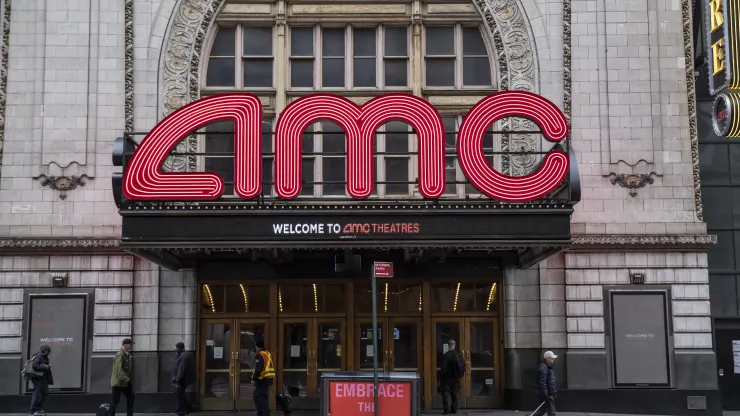
AMC investors voted Tuesday to approve a reverse stock split and the conversion of APE shares into common company shares.
The result of the special shareholders meeting is expected to pave the way for the movie theater chain to continue raising cash, reduce its debt load through stock sales and increase its share base. The APE stock was issued less than a year ago.
Shares of the company fell more than 15% Tuesday.
Preliminary results for Tuesday’s meeting show that the APE conversion proposal passed with 978 million votes, or 88% of those cast. The second proposal, the reverse split of the company’s common shares at a ratio of 10:1, passed by a similar margin.
“I would like to commend our shareholders for the wisdom exhibited in your votes by approving these proposals, and doing so by a wide margin,” said CEO Adam Aron following the vote. “This is a landslide victory that shows your determination to keep AMC a strong and innovative company and the leader of our industry.”
He also noted that APE conversion vote will eliminate the gap between the value of AMC shares and the preferred dividend, which has hampered the company’s efforts to sell stock.
However, a Delaware Chancery Court injunction hearing planned for April 27 could delay any new debt-raising action by the world’s largest theatrical exhibitor.
The hearing is centered around a class-action lawsuit that claims AMC circumvented shareholders who were against adding more shares by creating the preferred stock APE. The ticker symbol APE is a reference to AMC retail investors who dubbed themselves “Apes.”
Aron also addressed the April hearing, telling investors that he would keep them updated on developments.
Tuesday’s vote comes less than a month after AMC posted disappointing fourth quarter earnings. The company saw revenue fall 15% to $990.4 million from $1.17 billion in the prior-year period.
Losses also widened, as AMC posted a net loss of $287.7 million, a steeper fall than the $134.4 million in losses it posted a year ago.
Essentially, AMC continues to spend more on operating costs and rent than it is making from admissions and concessions. As of Dec. 31, the company had nearly $850 million of available liquidity.

According to the foreign media The Verge, recently, Tesla CEO Elon Musk's goals in the field of fully autonomous driving (FSD) have once again fluctuated.
According to the foreign media The Verge, recently, Tesla C…
In early 2026, Greenland along the North Atlantic coast bec…
Recently, the century-old American high-end department stor…
Recently, the U.S. stock market has appeared turbulent amid…
Recently, the largest private equity firm in South Korea, M…
In early 2026, after the Trump administration detained Vene…